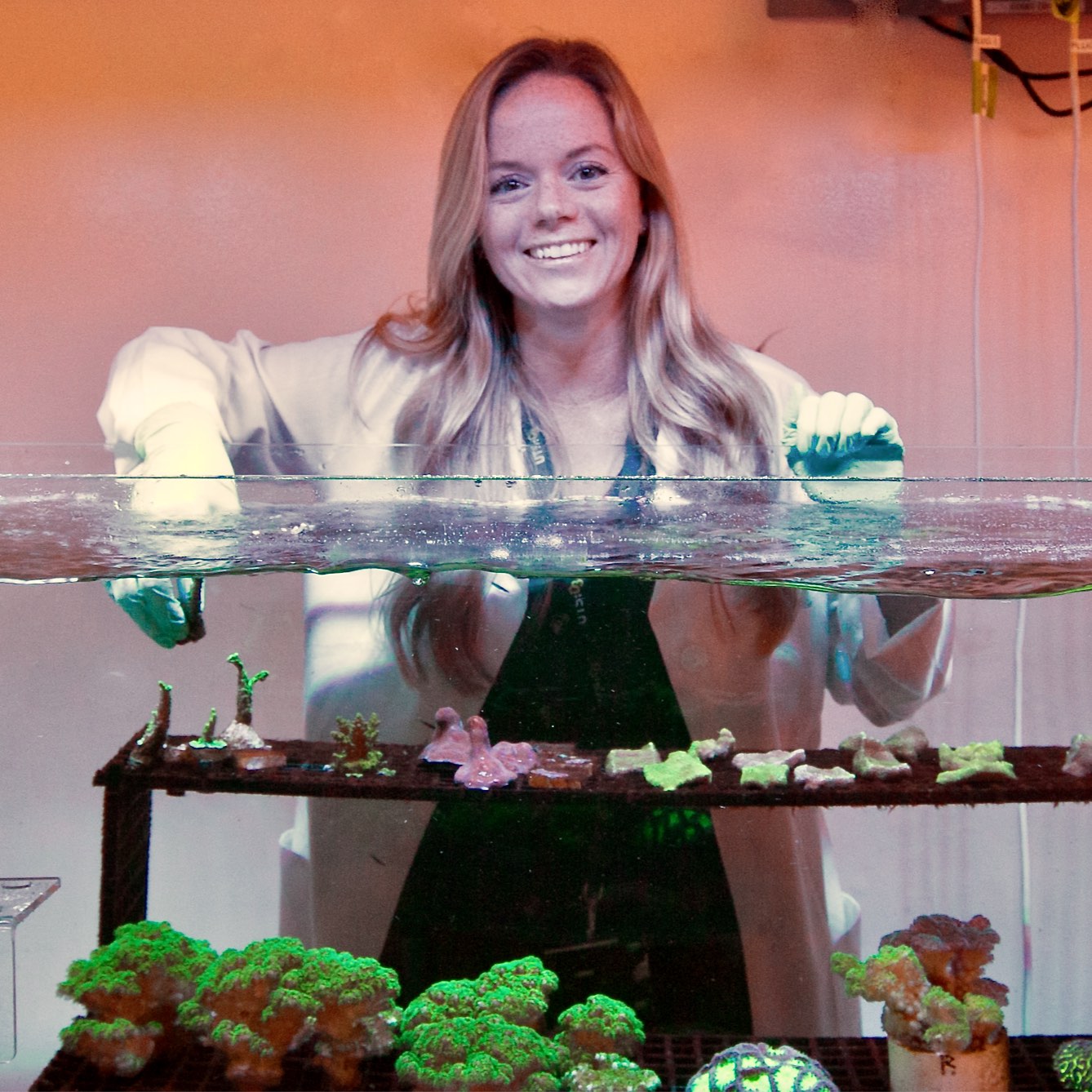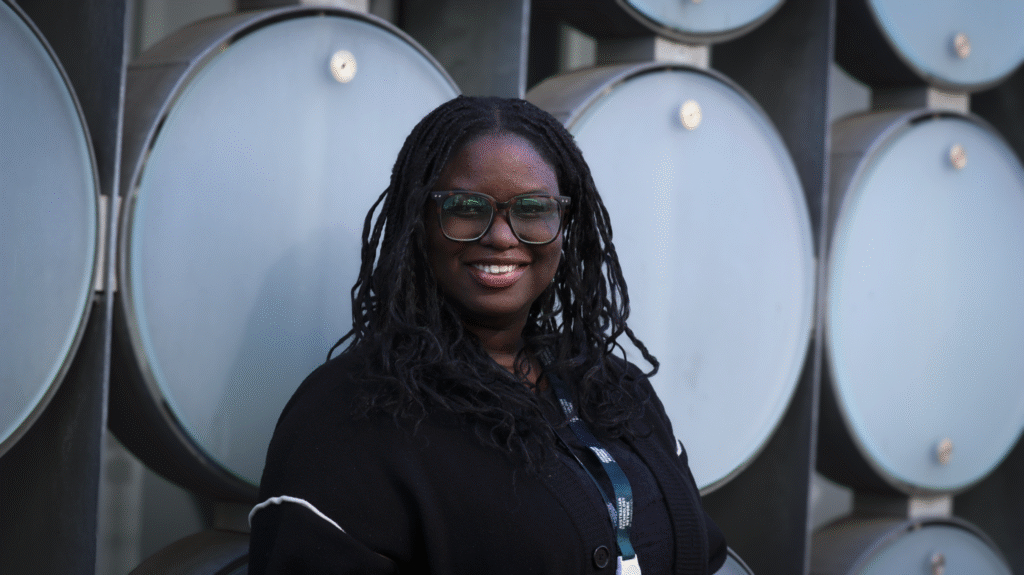Under the Microscope – Dr Jen Matthews, UTS
16 August 2023Meet Dr Jen Matthews, a carol nurtrition researcher and NSW Young Tall Poppy Science Award winner from UTS.

Dr Jen Matthews is part of a concerted effort taking place in Australia to restore and conserve the Great Barrier Reef. Her current research into coral nutrition as part of the Chancellor’s Research Fellowship in the University of Technology Sydney (UTS) showcases the novel approaches being taken to rebuild degraded reefs and Jen’s work has been recently recognised by the Young Tall Poppy Awards. We caught up with her to talk about what inspires her work, how UTS has supported this research, and her take on how to best help the cause.

Jen’s interest on the topic sparked in 2009 during a diving trip in Thailand, when she saw corals for the first time. The colourful underwater city left her in awe. However, her excitement turned to concern when she learned that the breathtaking corals were dying, bleached by the extreme sea temperatures.
“This sparked a profound curiosity in me. If corals could look so incredible in distress, how truly magnificent must they be when thriving in good health?” she told us.
“If we don’t take immediate and substantial action to reduce climate emissions, coral reefs might not survive this century.”
-Dr Jen Matthews
As a coral biologist and marine metabolomicist, Jen is part of the Future Reefs Program in C3, a research institute at UTS which focuses on innovative solutions to progress Australia’s bioeconomy. Access to wider Faculty of Science facilities in the campus have also been instrumental in driving her research discoveries and contributions. “UTS has such a community feel, like you’re all involved in a joint mission to improve society through new knowledge and innovation.”
She has been recognised at the Young Tall Poppy 2023 Awards, where winners participate in education and community outreach programs in which they inspire school students about the possibilities of science. Jen believes this will help propel her outreach potential and forge valuable connections. “It grants me the platform and resources to reach out and engage with aspiring individuals, fostering a spirit of curiosity and ambition,” she added.


Recently, UNESCO recommended a delay on any decision to place the Great Barrier Reef (GBR) on a list of “in danger” World Heritage sites but emphasised climate change and pollution still pose a great risk. While this came as a relief to many who benefit from the reef as a tourist destination, scientists have been more critical.
“Whether it made the list or not should have no effect on the urgency of our actions to protect and restore Australia’s coral reefs,” Jen stressed. “If we don’t take immediate and substantial action to reduce climate emissions, coral reefs might not survive this century.” She recommended people use sustainable travel options and tourist operators if they want to visit the coral reefs, and to be conscious of the seafood they eat, and the emissions and waste they produce.
Jen is now looking forward to another busy coral spawning season where she’ll be part of collaborations that hold great promise as active interventions on the GBR. In the meantime, being a new mum, she hopes to enjoy more time with her daughter, swimming and dabbling in her favourite pass time, drawing.
Subscribe to our ATN Advocate newsletter
Want to see more success stories from the incredible people across ATN’s six innovative universities? Subscribe to our monthly newsletter ATN Advocate below:

